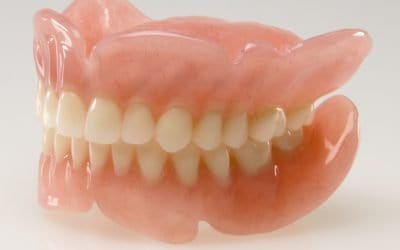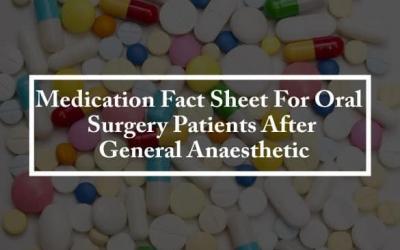They say “Prevention is better than cure; Nowhere is it more relevant than when we apply it to dental decay and gum disease. These two dental diseases account for most of the dental work throughout the world. BOTH of these diseases are entirely preventable. In this...
General Information
Gum Disease – The Basics Explained – PH-19
-The nature of gum disease…. Firstly it is essential to understand that gum disease is an inflammatory condition. The plaque bacteria present in the mouth consume nutrients from your food and metabolise these chemicals producing highly toxic waste products. These...
Keep Children’s Teeth healthy – PH-18
Devastating Dental News……. The Australian National Oral Health Survey results released by the University of Adelaide show that dental decay affects a significant proportion of children. Over 40% of children between the ages of 5 years and 10 years have decay in their...
What type of anaesthesia is best for you? – PH-17
There are three options when considering how to perform a dental or oral surgical procedure. These options involve how we ensure the procedure can be made pain-free and acceptable to the patient. The options are local anaesthetic (LA), general anaesthetic (GA) or...
Oral care and cancer treatment – PH-16
Cancer becoming more common…. Sadly cancer has become a significant community problem affecting larger and larger numbers of patients worldwide. Many cancer sufferers are receiving their cancer therapy as outpatients and as a result, more dentists are likely to see...
Third molars – the whole story – PH-15
FACT: Wisdom teeth have been causing problems for human beings for thousands of years. They continue to do so today and will continue to do so in the future. FACT: The decision to remove them or leave them alone is not always straightforward Problems caused by wisdom...
Dry socket mainly a complication of lower molar extractions – PH-14
WHAT IS A DRY SOCKET? A dry socket is a localised area of painful inflammatory response within the bone at the site of a recent tooth extraction, most commonly at the back of the lower jaw. It usually occurs between 3 and 7 days after the tooth has been removed and is...
Medication fact sheet for oral surgery patients after local anaesthetic or intravenous sedation – PH-13
When to take your medications prescribed by Dr Priestland......... Begin taking antibiotics (Keflex or Amoxicillin) and anti-inflammatory drugs (if prescribed - Naproxen) the night before surgery and continue to take them every 8 hours. If you are having intravenous...
Instructions for Immediate Denture patients – PH-12
After surgery,DO NOT REMOVE the denture from your mouth for 24 hours if possible. The denture will control the bleeding, limit swelling and act as a band-aid. If the denture is removed, swelling will occur that may make it difficult or impossible to remove and replace...
Medication fact sheet for oral surgery patients after general anaesthetic – PH-11
When to take your medications prescribed by Dr Priestland......... When you are asleep in the operating theatre the anaesthetist may give you a large dose of antibiotics intravenously along with pain-control drugs and anti-inflammatory medications. This means you...
At NQ Surgical Dentistry, We Offer:
- Implant and Oral Surgery in Townsville
- Periodontics in Townsville
- Intravenous Sedation for dentistry in Townsville
Contact the friendly team at NQ Surgical Dentistry today on (07) 4725 1656 or call in to see us at 183 Kings Rd, Pimlico QLD 4812











